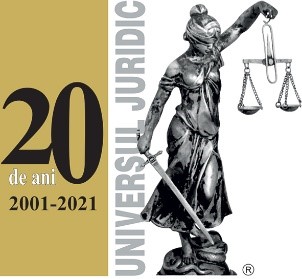Au terţii un veşmânt logic comun în Codul civil?
valeriu.stoica[at]drept.unibuc.ro
Cuvinte cheie:
third party, effects of the agreement, succesor, third party beneficiary, contracting third party, good faith, bad faith, determination of the subject matter of the agreement by a third party, injured third partyRezumat
There are approximately 400 references to third parties in different texts in the Civil Code, which create as many regulatory contexts. Added to these are those contexts in which third parties disguise themselves under a different name, such as creditors and heirs (when the latter do not become parties). The most important regulatory context in which third parties are present shall be that of the effects of the agreement, a context which generally expands to the effects of the legal document; the third parties beneficiaries are also included in this context (II). The largest context, composed of legal rules being present in most part of the matters of the Civil Code, shall be the context of opposability, by reference to a legal document, to a legal deed in a narrow sense, to a legal relationship or to a subjective right (III). The contracting third party or, in a narrower sense, the third party acquirer often appears acting either in good faith or in bad faith (IV). The third party is sometimes represented, and at times, it acts as representative (V). The third party is either the injured party, or the party causing loss (VI). There are cases in which the third party finds that its own assets are the subject matter of the agreements concluded by other persons (VII). The third party may either be paid, or may be also the payer, and at times, it acts as guarantor (VIII). The third party may be assigned in a legal relationship (IX). The third party may have special power, determining the subject matter of the agreement, in general, or the price in the sale purchase agreement, in particular (X). Precisely because the third parties’ family is extremely diverse, some of them cannot be classified into a certain category, and therefore, they remain completely particular cases (XI). After reviewing the texts and normative contexts in which third parties appear, a conclusion may be drawn: the reasoning of the general and special character remains unknown to them; however, the only way in which the Civil Code civilized these savages was to catch them in the net of meanings of each normative context (XII).
Publicat
Versiuni
- 24-04-2023 (2)
- 13-09-2022 (1)









